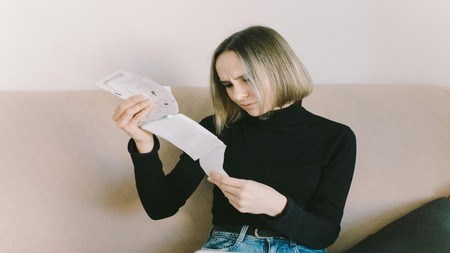Bond originators could be the solution for buyers who’ve had their home loan applications rejected by banks.
In the bad old days, you found a home you wanted to buy and approached your bank for a bond. If your application was rejected, you'd probably shed a couple of tears, wait a few years and then try again. At that stage, we all probably knew our bank manager by name and would approach him personally if we wanted a loan - after all, he knew who we were, he knew what we earned and while he may not have been privy to our entire credit history, he had a pretty good idea as to how we managed our money. Basically, if he believed that we weren't in the right financial position to buy a home - neither did we.
Banks have changed drastically over the years and many of us haven't a clue who our bank manager is anymore and are forced to deal with a multitude of different personnel every time we pop into our local branch. Banks have become impersonal. They have specific systems in place and if you don't meet the required criteria, you won't get a loan - regardless of who you know.
Bond originators couldn't have come along at a better time. They saw a gap in the market and not only took it, but by doing so changed the entire way in which people secured bonds. Most of our parents would never have dreamed of being disloyal by approaching another bank if the first application was rejected. However, originators looked at things differently and would not only search for a bank that would grant a bond, but would find one which would do so at the best possible rate.
There's simply no arguing the fact that originators have taken the pain out of raising bond finance. They know what the banks are looking for and supply the correct information in the correct manner. The results speak for themselves and Shaun Rademeyer CEO BetterBond recently noted that his group had over the last 12 months 'rescued' more than 25 000 applications worth an estimated R18.4- billion that were initially turned down. In other words, the group was able to secure finance for 25 000 buyers who had been having trouble raising the required cash - that's pretty impressive in anyone's book, given that 7000 of the rescued applications, worth about R5.3-billion, were initially declined by the prospective borrowers’ own banks.
While it's terrific to hear that so many applicants have been helped, this doesn't mean that an originator is going to be able to save every deal. Banks have strict lending criteria and there will be times when no amount of intervention is going to save the day.
Elmar Pittendrigh from Bond Gallery says that one of the main reasons a bond application is turned down is due to an impaired credit record. He adds while a client may believe he's in the clear because he has never defaulted on a payment, this isn't necessarily the case. Banks take a long hard look at the credit history of a potential bond holder and a late payment will also reflect negatively on a client's credit score.
Affordability is another area where a potential buyer may run into trouble. Pittendrigh says it's advisable for potential buyers to check what amount they qualify for prior to entering into an offer to purchase agreement.
He points out that the banks’ general rule on this is actually very logical and basically requires that a maximum of 30 percent of the applicant’s gross salary be used in terms of repayment. The second test is affordability - this is to ensure that the applicant will have sufficient money left over after deductions and contractual debt.
The other important aspect that has to be considered is the value of the property. Banks conduct a valuation on the property to be purchased in order to determine if there is sufficient value on the bonded asset. In many cases banks conduct a “desktop” valuation. This is done by doing comparable sale numbers on similar type of sales by dwelling and area. In cases where the bank does not find value, they will either decline or require a higher deposit.




